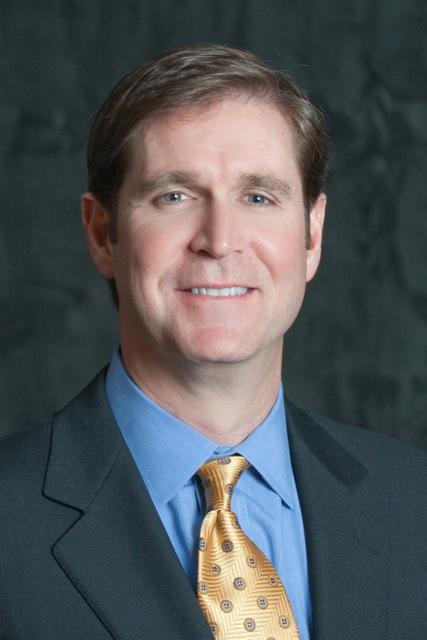
Nate Maslak, the co-founder/CEO of Ribbon Health
Price Transparency: In 2022, we saw CMS’s Transparency in Coverage rule go into effect, requiring non-hospital entities like health plans and providers to publish publicly available rates for care. In 2023, we’ll see this price transparency data become more mainstream as it finally makes its way into the hands of patients, empowering them to find the best care for them, reevaluate their care choices, and shop around for the best possible care options. Healthcare enterprises will invest in technology and infrastructure to manage this data and interpret it to be more accessible for their users.

BJ Schaknowski, CEO of symplr
In the coming year, the greater economy’s financial concerns are reflected in the healthcare industry. Budgets will remain stretched as decision-makers navigate rising inflation, diminishing reimbursements, and increased supply chain issues all while addressing staffing and burnout concerns. Increasingly, stakeholders will need to prioritize system interoperability and cost-optimizing solutions that leverage data-driven insights. Organizations should expect financial pressures to drive decision-making in the new year.

Russ Thomas, CEO of Availity
In 2023, mounting economic pressures mean revenue cycle leaders will further expand the use of AI and RPA technology to automate and streamline workflows, going beyond authorization and claim status processes commonly seen today. Claim corrections, posting functions, appeal processes, and patient engagement are just a few areas where AI can identify actions to automate with RPA technology. In addition to focusing on operational efficiencies, healthcare revenue cycle professionals will need to develop new skill sets to monitor and manage these technologies to identify and prioritize activities. While efficiency is always a priority for revenue cycle leaders, it’s becoming increasingly critical in today’s market.

Siva Namasivayam, co-founder and CEO of Cohere Health
The adoption of electronic prior authorization is long overdue, as our current processes are not sustainable. Between federal legislation and CMS’ proposed rules impacting the prior authorization process, health plans will need to adopt technologies that not only comply with the new federal regulations but also enable more strategic, proactive care management. As one of the first data signals of planned healthcare encounters, prior authorization is invaluable as a tool to hasten patient access to high-value care. Intelligent prior authorization solutions will provide the transparency and automation needed to align patients, physicians, and health plans on individualized care plans that rely on evidence-based guidelines to reduce variations in care and improve outcomes.

Lynn Carroll, COO of HSBlox
We will see increased development of programs that align global reimbursement with patient-specific episodic models. Alternative Payment Models for global reimbursement will incorporate patient-specific sub-capitation components, such as specialty carve-outs, episodes of care, and bundled payments.

Patty Hayward, VP of Strategy for Healthcare & Life Sciences at Talkdesk
Healthcare is in an inequitable situation where payers are experiencing double-digit growth and high profits while many providers are reporting record operating losses. The loss of government health emergency funding will only make this worse. This is not sustainable, and I predict it will lead to consolidation in the provider space. One of the bigger impacts will be providers embracing automation and other technology tools that can reduce operating expenses. Automation also can help providers overcome the severe shortage of healthcare workers, particularly in key non-clinical roles like contact center staff.

Kimberly Hartsfield, Executive Vice President, Growth Enablement at VisiQuate
As healthcare organizations are still struggling with data visibility across their revenue cycle operations, the internal debate of build v buy continues. Many leaders experience “sticker shock” with vendor proposals while failing to consider the actual cost of internal development, lack of resources and ongoing maintenance/support. There is a time and place to embrace vendor technology. The data management issues surrounding revenue cycle management operations are not a tomorrow problem. Finding vendor partners with deep expertise and quantified success saves both time and money while eliminating administrative waste in healthcare operations. In 2023, speed to value is the name of the game.

Michael Stearns, MD, Specialized Consulting Director – Medical Informatics, Health Language
Risk adjustment comes under the microscope: Medicare Advantage Organizations (MAOs) will see increased regulatory pressure in 2023 due to the cost of the program exceeding traditional Medicare and concerns over adequate documentation of reported conditions. Recent MAO audit reports published by the Office of the Inspector General of HHS suggest an increased focus on the adequacy of supporting documentation for reported diagnoses. MAOs will need to carefully review medical records to ensure there is documentation of evaluation and management of all reported conditions and increasingly turn to clinically tuned technology, such as natural language processing, to streamline the process with accuracy to ensure compliance.

Ryan Younger, VP of Marketing, Virtua Health
Finances will continue to be top-of-mind for health systems in 2023, particularly if we enter a defined economic downturn because consumers will tighten their belts across the board; healthcare is no exception. As consumers look for areas to cut unnecessary spending, they will seek out less services proactively. Health systems that collaborate effectively with physicians to offer a full spectrum of services will have a leg up because they provide more options and lower-cost settings.
